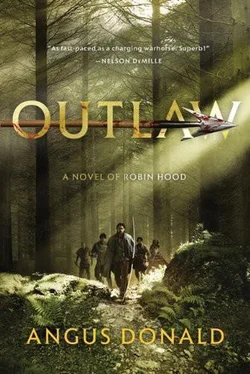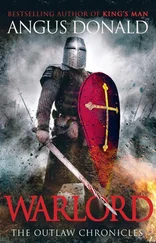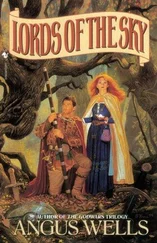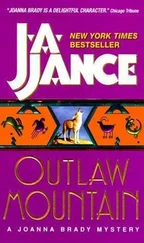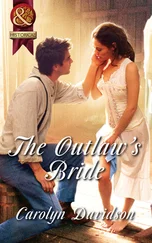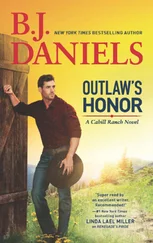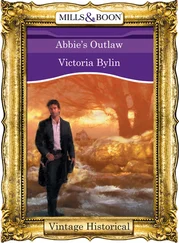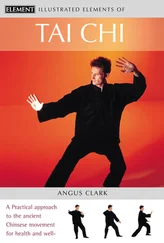Angus Donald - Outlaw
Здесь есть возможность читать онлайн «Angus Donald - Outlaw» весь текст электронной книги совершенно бесплатно (целиком полную версию без сокращений). В некоторых случаях можно слушать аудио, скачать через торрент в формате fb2 и присутствует краткое содержание. Жанр: Исторические приключения, на английском языке. Описание произведения, (предисловие) а так же отзывы посетителей доступны на портале библиотеки ЛибКат.
- Название:Outlaw
- Автор:
- Жанр:
- Год:неизвестен
- ISBN:нет данных
- Рейтинг книги:3 / 5. Голосов: 1
-
Избранное:Добавить в избранное
- Отзывы:
-
Ваша оценка:
- 60
- 1
- 2
- 3
- 4
- 5
Outlaw: краткое содержание, описание и аннотация
Предлагаем к чтению аннотацию, описание, краткое содержание или предисловие (зависит от того, что написал сам автор книги «Outlaw»). Если вы не нашли необходимую информацию о книге — напишите в комментариях, мы постараемся отыскать её.
Outlaw — читать онлайн бесплатно полную книгу (весь текст) целиком
Ниже представлен текст книги, разбитый по страницам. Система сохранения места последней прочитанной страницы, позволяет с удобством читать онлайн бесплатно книгу «Outlaw», без необходимости каждый раз заново искать на чём Вы остановились. Поставьте закладку, и сможете в любой момент перейти на страницу, на которой закончили чтение.
Интервал:
Закладка:
Angus Donald
Outlaw
Chapter One
A thin, sour rain is falling on the orchard outside my window, but I thank God for it. In these lean times, it is enough to warrant a fire in my chamber, a small blaze to warm my bones as I scratch out these lines in the grey light of a chill November day. My daughter-in-law Marie, who governs this household, is mean with firewood. The manor is mine, and there would be a decent, if not lavish living to be had for us on these lands if there were a young man or two to work them. But since my son Rob died last year of the bloody flux, a kind of weariness has settled upon me, robbing me of purpose. Though I am still hale and strong, thank the Lord, each morning it is a struggle to rise from my bed and begin the daily tasks. And since Rob’s death, Marie has become bitter, silent and thrifty. So, she has decreed, no chamber fires in daylight, unless it rains; meat but once a week; and daily prayers for his soul, morning and night. In my melancholy state, I cannot find the will to oppose her.
On Sundays, Marie doesn’t speak at all, just sits praying and contemplating the sufferings of Our Lord in the big, cold hall all day and then I rouse myself and take my grandson, my namesake Alan, out to the woods on the far edge of my land where he plays at being an outlaw and I sit and sing to him and tell him the stories of my youth: of my own carefree days outside the law, when I feared no King’s man, no sheriff nor forester, when I did as I pleased, took what I wanted, and followed the rule of none but my outlaw master: Robert Odo, the Lord of Sherwood.
I feel the cold now, at nearly three score years, more than I ever did as that young man, and the damp; and now my old wounds ache for most of the winter. As I watch the grey rain drifting down on to my fruit trees, I clutch my fur-lined robe tighter against the chill air and my left hand drifts up the sleeve, over the corded swordsman’s muscles and finds its way to a long, deep scar high on my right forearm. And stroking the tough, smooth furrow, I remember the terrible battle where I earned that mark.
I was on my back in a morass of blood and churned earth, half-blinded by sweat and my helmet, which had been knocked forward, my sword held pointing up at the sky in a hopeless gesture of defence as I gasped breathless on the ground. Above me, the huge, grey-mailed swordsman was slashing at my right arm. Time slowed to a crawl, I could see the slow sweep of his blade, I could see the bitter rage on his face, I could feel the bite of the metal through the padding of my sleeve into the flesh of my right arm, and then, out of nowhere, came Robin’s blocking sword-stroke, almost too late, but stopping the blade from slicing too deeply.
And, later, I recall Robin bandaging the wound himself, sweat-grimed, his own wounded face bleeding, and grinning at me as I winced in pain. He said, and I will remember his words until my death: ‘It seems that God really wants this hand, Alan. But I have denied it to him three times — and He shall never take it while I have strength.’
It was my right hand, my quill hand that he saved, and with this hand I plan to repay my debt to him. With this instrument, the Lord willing, I will write his story, and my story, and set before the world the truth about the vicious outlaw and master thief, the murderer, the mutilator and tender lover, the victorious Earl and commander of an army, and, ultimately, the great magnate who brought a King of England to a table at Runnymede and made him submit to the will of the people of the land; the story of a man I knew simply as Robin Hood.
Everyone in our village knew Robin was coming. Since the lord of the manor’s death last winter, the village had an almost perpetual holiday atmosphere: there was no authority to force them to work on the lord’s demesne and, after tending their own strips of land, the villagers had time on their hands. The alewife’s house was full all day and buzzing with talk of Robin’s exploits, adventures and atrocities. But very little truth was spoken and news was scant: merely that he would be arriving at dusk and he would see anyone who had business with him at the church that night, where he would hold his court.
I was above all this noise and nuisance, quite literally, as I was hiding in the hayloft above the stable at the back of my mother’s crumbling cottage in a den I’d built in the hay. I was thirteen summers old, I had a throbbing knot the size of a walnut on my forehead, a bloody nose, a bad cut on my cheek, and I was treating the terror that I felt with a large dose of absolute boredom. I’d been there since mid-afternoon when I had stumbled into our home, breathless, cut and bruised, having escaped the rough hands of the law and run the dozen miles from Nottingham across the fields all the way home.
We were poor, almost destitute and, after seeing my mother weeping with exhaustion one too many times after a day scratching a meagre living gathering and selling firewood to her neighbours, I had decided to become a thief, more precisely a cut-purse: I cut the leather straps that secured men’s purses to their belts with a small knife that I kept as keen as a razor. Nine times out of ten, they never noticed until I was twenty yards away and lost in the thick crowds of Nottingham’s market place. When I returned home with a handful of silver pennies and placed them before my mother, she never asked where they had come from, but smiled and kissed me and hurried out to buy food. Though it had been necessity that drove me to take my daily bread from others, I found, God forgive me, that I was good at it, and liked it. In fact, I loved the thrill of the hunt; following a fat merchant as he waded through the market-day crowds, silent as his shadow, then the rough jostle, as if by accident, a quick slice and away before the man knew his purse was gone.
That day, however, I’d been stupid and I’d tried to steal a pie — a rich, golden-crusted beef pie, as big as my two fists — from a stall. I was hungry, as always, but overconfident too.
It was a ruse I had used before: I stood behind a blowsy alewife who was poking the wares on the stall and grumbling about their price; surreptitiously lobbed a small stone at the next stallholder along — a cheesemonger, if I remember rightly — hitting him full on the ear; and in the ensuing recriminations between stallholders, I swept the pie off the board and into my open satchel and sauntered away.
But the pieman’s apprentice, who’d been taking a piss behind their cart, came out just as I was scooping up my dinner and shouted: ‘Hi!’ And everybody turned. So then it was ‘Stop thief!’ and ‘Catch him, somebody!’ as I squirmed like a maddened eel through the press of townsfolk until — crack! — I was knocked down by a cudgel to the forehead from some yokel and then grabbed round the neck by a passing man-at-arms. He punched me twice full in the face with his great mailed fist and my legs went limp.
When I came round, moments later, I was lying on the ground at the centre of a jabbering crowd. Standing over me was the soldier, who wore the black surcoat with red chevrons of Sir Ralph Murdac, by the wrath of God, High Sheriff of Nottinghamshire, Derbyshire and the Royal Forests. And suddenly I was seized rigid with terror.
The soldier hauled me to my feet by my hair and I stood dazed and trembling while the scarlet-faced apprentice yammered out the tale of the stolen pie. My satchel was torn open and the circle of onlookers craned to see the incriminating object steaming gently, deliciously, at my waist. I still get jets of saliva in my mouth when I remember its glorious aroma.
Then, a wave of jostling and shouting, and the crowd parted, swept aside by the spears of a dozen men-at-arms, and into the space stepped a nobleman, dressed entirely in black, who seemed to move in his own personal circle of awe.
Читать дальшеИнтервал:
Закладка:
Похожие книги на «Outlaw»
Представляем Вашему вниманию похожие книги на «Outlaw» списком для выбора. Мы отобрали схожую по названию и смыслу литературу в надежде предоставить читателям больше вариантов отыскать новые, интересные, ещё непрочитанные произведения.
Обсуждение, отзывы о книге «Outlaw» и просто собственные мнения читателей. Оставьте ваши комментарии, напишите, что Вы думаете о произведении, его смысле или главных героях. Укажите что конкретно понравилось, а что нет, и почему Вы так считаете.
